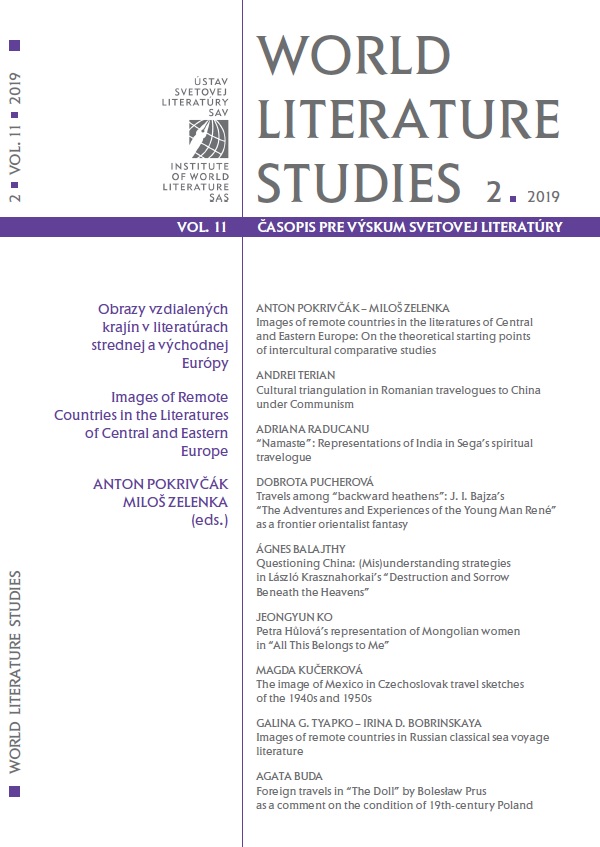Foreign travels in “The Doll” by Bolesław Prus as a comment on the condition of 19th-century Poland
Foreign travels in “The Doll” by Bolesław Prus as a comment on the condition of 19th-century Poland
Author(s): Agata BudaSubject(s): Language and Literature Studies
Published by: Ústav svetovej literatúry, Slovenská akadémia vied
Keywords: Imagology; 19th-century Poland; Travel; Distance; Bolesław Prus:
Summary/Abstract: The Doll (Lalka) by Bolesław Prus is one of the most significant books known by every Polishperson. It is not only a great example of a novel presenting the Poland of the 19th century,but it is also a work of a didactic character, full of romantic, political and social references.Furthermore, it is a novel concerning the condition of 19th-century Polish high society which perceived travel abroad as a way to regain their lost position or to improve their personal situation. In Poland, only the wealthiest people could travel. In The Doll, for instance it is Tomasz Łęcki who shines abroad till he goes bankrupt. The novel presents Paris as one of the most desirable destinations. Other places such as Bulgaria and Turkey were popular destinations for gaining one’s fortune. The characters’ travels to these places are both a way to escape from the grey reality of Polish towns and to find the promised land of prosperity. As the 19thcentury was also the age of distant journeys to Africa, Asia and America, Prus’s characterstravel there; Starski is perceived as a man of the world due to his numerous exotic journeys,Wokulski searches for happiness in Asia and America after being rejected by the woman heloves. The images of the remote countries are presented through the perspective of imagology.Travel was connected with the nation’s own search for identity till the moment that Polandregained full independence in November 1918.
Journal: World Literature Studies
- Issue Year: 11/2019
- Issue No: 2
- Page Range: 123-131
- Page Count: 9
- Language: English

